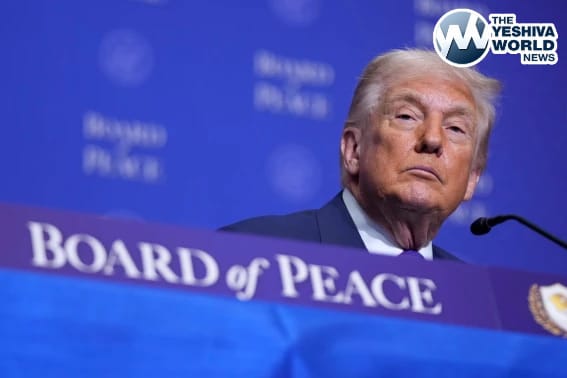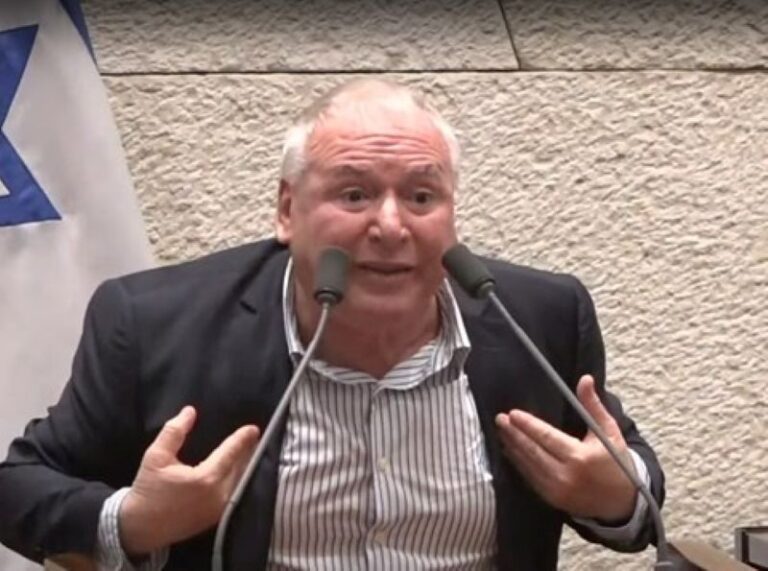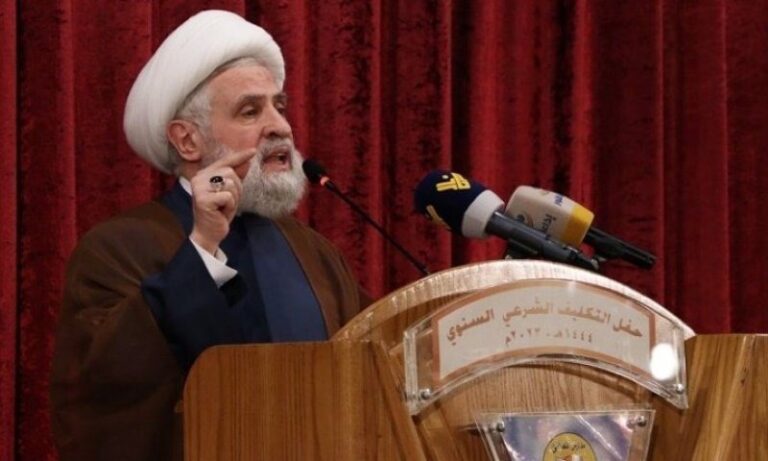 [The following Op-Ed was written by Tevi Troy]
[The following Op-Ed was written by Tevi Troy]
Laura Meckler had a piece in this morning’s Wall Street Journal about Jewish donors’ warning Obama not to push Israel too hard in his Middle East speech today. If she’s right about Jewish discomfort with Obama’s Middle East policies — and I think she is — Jewish donors and voters alike will not be comforted by Obama’s speech.
There were three main problems with the address. The first is the way in which Obama explained the ongoing Israeli–Palestinian conflict. It is notable that when Obama said, “Israeli settlement activity continues. Palestinians have walked away from talks,” he put the Israeli action first. A plausible interpretation of this is that, in Obama’s view, Palestinians walked away as a result of Israel’s settlement activity, and the Palestinian walkaway is therefore justified.
Second is that Obama did not demand an end to Palestinian misbehavior so much as predict, in a removed way, that such behavior will not serve them well:
For the Palestinians, efforts to delegitimize Israel will end in failure. Symbolic actions to isolate Israel at the United Nations in September won’t create an independent state. Palestinian leaders will not achieve peace or prosperity if Hamas insists on a path of terror and rejection. And Palestinians will never realize their independence by denying the right of Israel to exist.
Compare this with Bush’s starker and more direct words on the subject in his June 24, 2002, speech:
And the United States will not support the establishment of a Palestinian state until its leaders engage in a sustained fight against the terrorists and dismantle their infrastructure.
When it comes to Israel, however, Obama returns to demand, rather than predictive, mode, saying that “Israel too must act boldly to advance a lasting peace.
Third, Obama placed few limits on his support for a two-state solution. He also minimized Israel’s security concerns and limited Israel’s negotiating leverage by calling for a state with 1967 borders, instead of letting the parties themselves hash out the parameters. Again, compare this with the words of Bush, who rightly made American support for a Palestinian state contingent on concrete Palestinian actions:
If Palestinians embrace democracy, confront corruption, and firmly reject terror, they can count on American support for the creation of a provisional state of Palestine.
All of this is not accidental. Presidential speeches are written and rewritten so that they convey specific messages.
For these reasons, Obama has ample reason to worry about a poor reception when he speaks to a very pro-Israel audience at AIPAC this Sunday. In addition, Obama’s campaign goal of raising $1 billion becomes much harder if he loses major Jewish fundraisers. While Bush’s 2004 improvement in the polls among American Jews was relatively small — from 19 percent support in 2000 to 24 percent in 2004 — Bush also poached a number of significant fundraisers from the Democratic side because of his pro-Israel stance.
Finally, Obama has reason to fear a poorer showing in the overall Jewish vote in 2012. More important, though, it’s not just Jewish voters Obama needs to worry about. Polls have consistently shown that Americans in general are supportive of Israel. Jews are only 2 percent of the population, but the percentage of Israel backers who will be going to the polls in 2012 will be much higher.
Tevi Troy is a visiting senior fellow at the Hudson Institute. A former senior White House aide and deputy secretary of Health and Human Services in the Bush administration, he also served as the White House Jewish Liaison.
The above Op-Ed was originally published NationalReview, and submitted to YWN by the author.
(YWN World Headquarters – NYC)











5 Responses
Obama’s speech would’t have worried the Satmar Ruv why should it worry me ?
To joel5: if you’re a Satmar chussid, ashrecha. As for many others, if it doesn’t worry the Moetzes ….
If prior to the elections – there would be massive ads informing the Christian communities of Obama’s dangerous agenda, it could be very effective in preventing Obama from re-election.
Refreshingly, this opinion piece is wrong in so few ways that I can count them. Here they are:
1. The author, Mr. Troy, finds fault with President Obama’s explanation of the ongoing Israeli-Palestinian conflict, because he summarizes Israel’s position first, and then says that this plausibly implies that Israel is the cause of the problem. That may be “a plausible interpretation”, but it is not “the” plausible, or “the only” explanation, and it is not even all that plausible. The President’s explanation is succinct, is necessarily over-simple (you can’t explain 400, 800 or 2000 years of history in a speech), and more or less on the mark. There is no implication, nor any reasonable basis for an inference, that explaining Israel’s position before explaining the Palestinian position means that Israel is the cause of the conflict. There is nothing for Jewish American voters to worry about on this point.
2. The author objects that the President did not demand that Palestinians end their bad behavior, and quotes a passage of the speech that begins, “For the Palestinians, efforts to delegitimize Israel will end in failure.” Yes, that is, linguistically, more of a prediction than a demand. But in diplomatic circles, that is a very plain but non-demanding statement that the US is opposed to Palestinian bad behavior. By casting the statement as something other than a demand, the President is avoiding an Arab hot button that goes off when the US makes demands, but the speech clearly sets forth the President’s expectation that the Palestinians must stop their bad behavior if they want their own state. Call it “diplomacy” if you like, but you cannot reasonably interpret it as the President’s acquiesence in Palestinian bad behavior. The balance of the quoted text makes it quite clear that the US will oppose any efforts by the UN to unilaterally recognize a State of Palestine. That’s good news for the Jews, even if it lacks the “in-your-Arab-face” bluntness that Mr. Troy would prefer.
3. The author’s comparison of a statement by President Bush in 2002 with Mr. Obama’s speech overlooks the very strong similarity between the two Presidents’ positions, anc concludes that President Obama is making a “demand” on Israel, when he should instead make a “demand” on the Palestinians. Well, a US president made a “demand” in 2002, and 9 years later, it has not borne fruit. Perhaps President Obama believes that the time for US “demands” is past, and that more diplomatic, softly worded requests and advice will help restart Israeli-Palestinian negotiations.
3. President Obama did not – not – not – call for Israel to withdraw to its pre-1967 borders. This has been a persistent lie of every right-wing commentator in the hours since President Obama gave his speech. President Obama’s speech plainly says that Israel and the Palestinians must negotiate land-swaps, with the pre-’67 borders as a framework, for a negotiated geographical configuration of the State of Israel. President Obama’s proposal is not much different than the proposal of MK Danny Danon (Likud party), published this week on the New York Times op-ed page, that Israel trade the Jewish settlements in the West Bank for the Arab areas of the West Bank. That is easier said than done, but it is a framework for negotiations, and that is the end-stage (other than a more Torahic end-stage) of the process by which the State of Israel will achieve recognition and defensible borders from its Arab neighbors.
4. The foregoing three errors are all errors in interpreting a speech delivered to several audiences – the American Jewish voters, all American voters, Arab dictators, Arab Spring revolutionaries, the Arab Street, Israelis of every faction (in a land with more political parties per capital than any other modern democracy), supporters of Arabs among US allies, and several others. The President knows that he had to satisfy all these diverse audiences, and I think his speech walked that tightrope very well.
The author’s fundamental error (the mother of all errors?) is the author’s belief that the American Jewish voter, and the American Jewish political donor, cannot recognize the tightrope that the President must walk and insist on much more forceful words from the US president. We Jews must look at the last 60+ years and consider how we can break the stalemate in Arab-Israeli relations that has persisted over this period. The President has rightly recognized that the Arab Spring may signal a fundamental change in the outlook of the Arab Street – that Arabs, including Palestinians – are ready to end the stalemate that has left them behind as other parts of the world – particularly the Far East – has developed and prospered in the last 60 years. The President’s speech did not change US policy of support for a democratic Jewish state in the region formerly known as Palestine, but he has changed the message to the Arabs that their future will not get better without an end to their 60-year effort to deligitimize the State of Israel. The president’s message is good news for the Jews, and the sooner we American Jews recognize it, the better.
To joel5 # 1, if you would be living in E. Israel & you know there are sub human murder-es, that don’t care about women & children, just 8 miles away, I think you would think diffrently. The Satmar Ruv ZT’L was in anguish when he heard even 1 nefesh being killed. The Satmar Ruv NEVER made any statetment that would even M’sufik jepordize the safety of any jew (even a zionist).